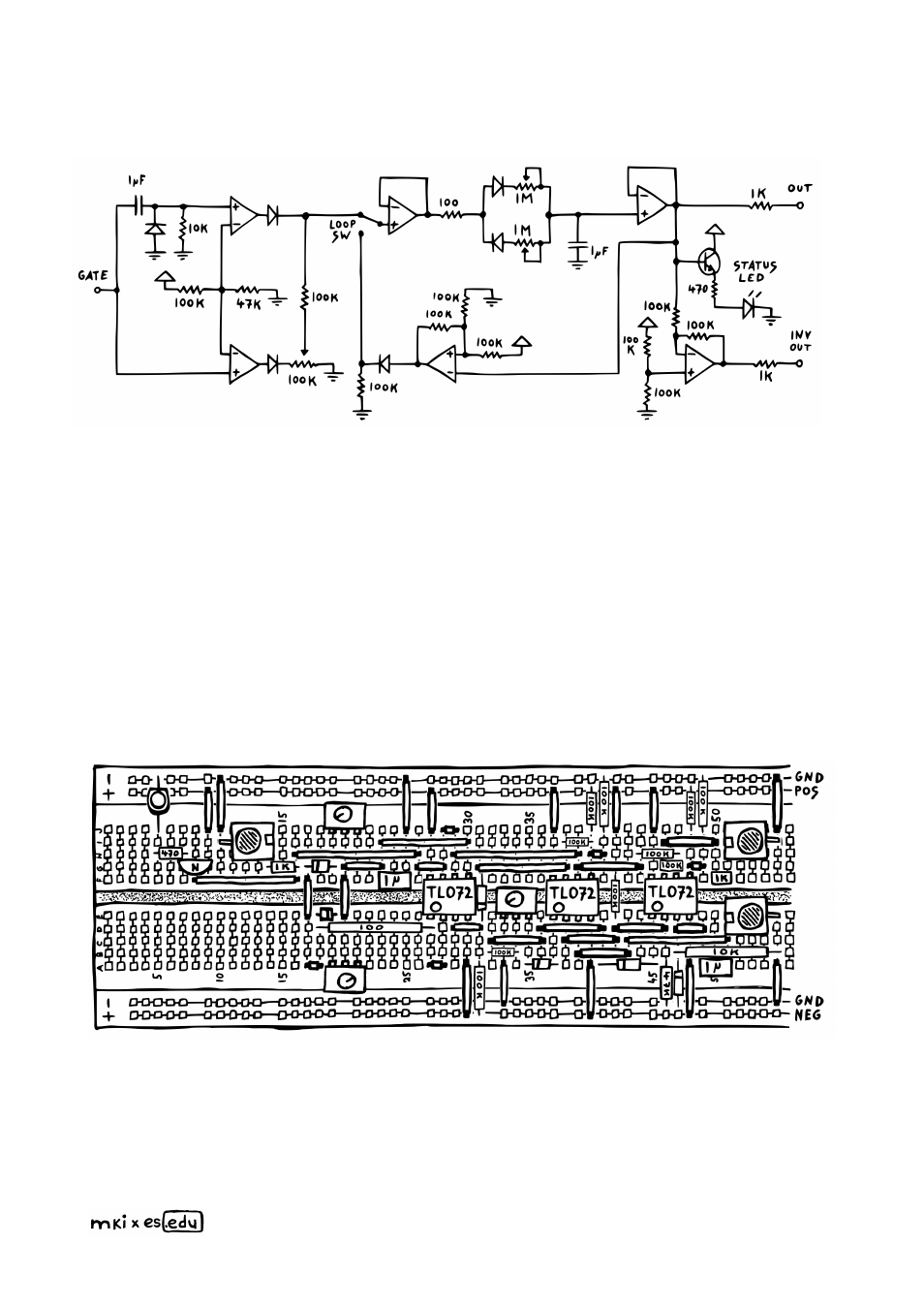Erica Synths EDU DIY EG Eurorack Module Kit User Manual
Page 23

directly to the input bu
ff
er –
ideally through a simple switch that allows us to toggle
between the regular mode and our new loop-mode.
By circumventing the input comparators, the relation between our Schmitt trigger
inverter’s state and the envelope’s output voltage becomes a lot simpler
. Because
now, there’s no envelope setting that can prevent its output from peaking at a value below
8 V. The inverter will simply keep pushing out a high level voltage until we cross that
threshold.
Great! But before we try this on the breadboard, there’s another small thing I snuck in
here: the 100
Ω
resistor after our input bu
ff
er. This is really more of an added bit of polish.
It ensures that when our attack- or release-pots are dialed down all the way,
(dis-)charging the capacitor isn’t instant
. If we leave this out, we might get an ugly
clicking-noise from our filter, for example – simply because the change in cuto
ff
frequency
is so abrupt.
And with that, our envelope is done. If you now want to make your creation permanent,
dig out the panel and PCB from the kit, heat up your soldering iron and get to building!
You can find more information on how to populate the board & how to solder in the
enclosed appendix.
23
